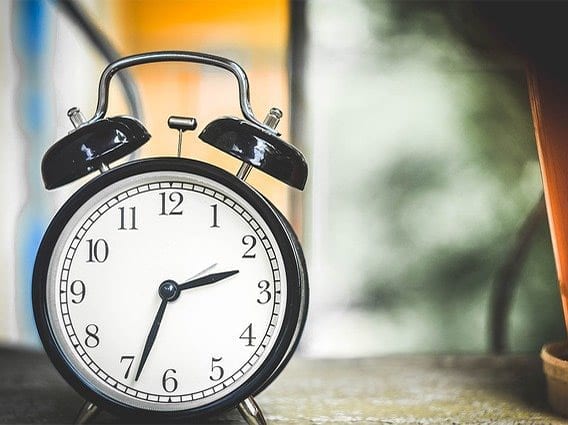Why You Wake Up Before Your Alarm
We’ve all been there – you roll over in the morning, look at the clock, and realize you could have snoozed for several more minutes. You can blame your body’s internal clock – or circadian rhythm.
Your circadian rhythm governs your sleep-wake cycle and is influenced by external factors, such as when things get dark at night, Katy Evans writes. This cycle is partially regulated by the protein PER, levels of which rise and fall every day. These levels typically drop at night, slowing your heart rate, lowering your blood pressure, and generally just making you tired.
With a consistent sleep-wake routine, your body increases its PER levels about an hour before you usually wake up, “helping to ease your way into a brand new day.”
“Basically, your body hates your alarm and doesn’t want to be dragged kicking and screaming out of delicious sleep, it wants to get there leisurely and at its own pace, thank you very much,” Evans writes. And while it may be tempting to hit that snooze button when your alarm actually does go off, this can actually do more harm than good by mixing up the hormones that help you fall asleep with those that help you wake, and ultimately making you feel worse.
There are a few things you can do to help yourself catch some more zzzzzzs. Consistency is key to your body clock. Implementing a routine is a great way to help improve your sleep. Changing your alarm type may also help you begin your day in a less jarring way. A gradual alarm with a sound that slowly increases in volume, or a natural light alarm clock that simulates natural light to slowly encourage you to wake. Avoiding using your smartphone as an alarm is also a smart move, as the blue light emitted by the screen can decrease your body’s production of melatonin.














